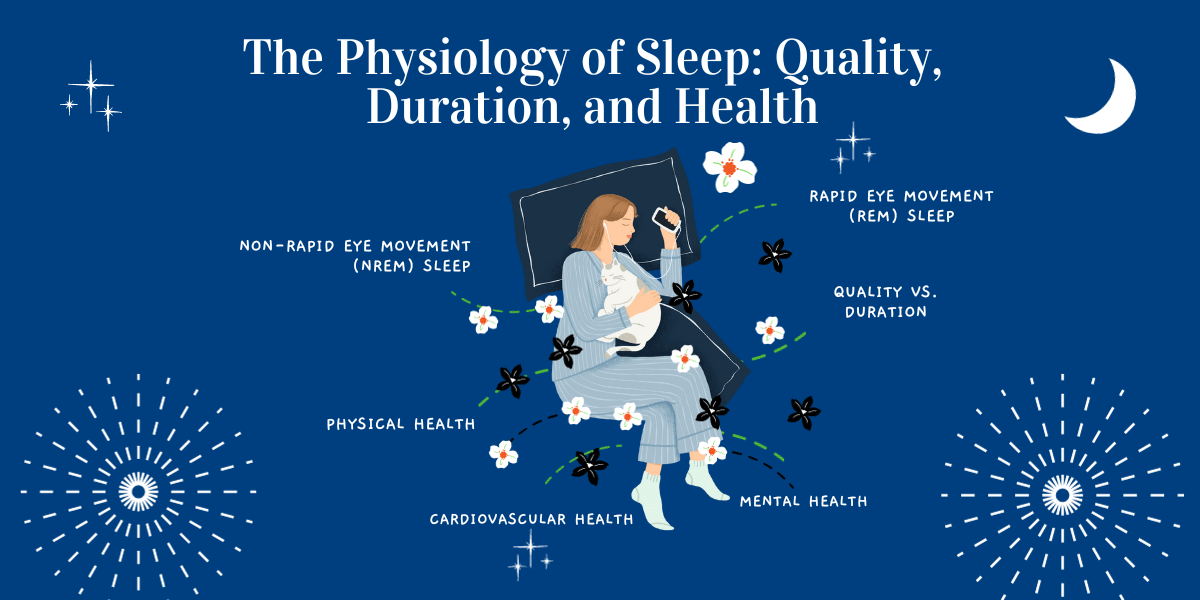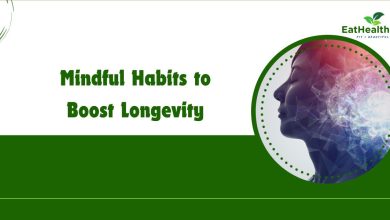The Physiology of Sleep: Quality, Duration, and Health
Sleep Unveiled: The Physiology, Quality, and Health Connection
The Physiology of Sleep: Unraveling the Connections Between Quality, Duration, and Health

Sleep is a fundamental aspect of human life, yet its importance often goes underestimated. The quality and duration of our sleep have a profound impact on our physical, mental, and emotional well-being. In this blog post, we’ll explore the intricate physiology of sleep, shedding light on the connections between sleep quality, duration, and overall health.
The Sleep Cycle
To understand the physiology of sleep, we must first grasp the concept of the sleep cycle. Sleep is not a uniform state but rather a dynamic process characterized by distinct stages:
-
Non-Rapid Eye Movement (NREM) Sleep:
- Stage 1: The transition from wakefulness to sleep. Muscle activity decreases, and relaxation begins.
- Stage 2: A deeper state of sleep where heart rate and body temperature drop.
- Stage 3 and 4: Deep sleep stages often referred to as slow-wave sleep (SWS). These stages are crucial for physical restoration and memory consolidation.
-
Rapid Eye Movement (REM) Sleep:
- Dream State: REM sleep is when vivid dreams occur. It’s associated with increased brain activity, rapid eye movements, and muscle paralysis to prevent us from acting out dreams.
The sleep cycle consists of multiple cycles, with each cycle lasting approximately 90 minutes. As the night progresses, the proportion of REM sleep increases, while deep NREM sleep stages decrease.
Quality vs. Duration
Sleep quality and duration are two key factors that influence how well-rested we feel upon waking:
-
Quality:
- Restorative Sleep: Quality sleep involves spending adequate time in the deep NREM sleep stages. This is when physical repair, tissue growth, and immune system support occur.
- REM Sleep: REM sleep is crucial for cognitive processes, emotional regulation, and memory consolidation. Disruptions in REM sleep can lead to mood disturbances.
-
Duration:
- Individual Variations: The ideal duration of sleep can vary from person to person. While some thrive on 7-9 hours, others may require more or less.
- Consistency: Consistently obtaining the recommended amount of sleep is essential for maintaining overall health.
Health Implications
The physiology of sleep is tightly intertwined with our health:
-
Physical Health:
- Immune Function: Quality sleep enhances the immune system’s ability to defend against infections.
- Metabolic Health: Sleep influences hormones that regulate appetite and glucose metabolism, impacting weight management and diabetes risk.
-
Mental Health:
- Emotional Regulation: REM sleep plays a role in processing emotions and managing stress.
- Cognitive Function: Quality sleep is essential for memory, problem-solving, and creativity.
-
Cardiovascular Health:
- Blood Pressure: Poor sleep is associated with hypertension, increasing the risk of heart disease.
Improving Sleep
Enhancing sleep quality and duration requires attention to sleep hygiene practices, a consistent sleep schedule, and creating a conducive sleep environment. Avoiding caffeine and electronic screens before bedtime and establishing a calming bedtime routine can promote better sleep.
Conclusion
Understanding the physiology of sleep allows us to appreciate its profound impact on our health and well-being. Quality and duration are both critical factors in achieving restorative sleep. Prioritizing sleep and adopting healthy sleep practices can lead to improved physical, mental, and emotional health, allowing us to wake up each day feeling refreshed and ready to face life’s challenges.




